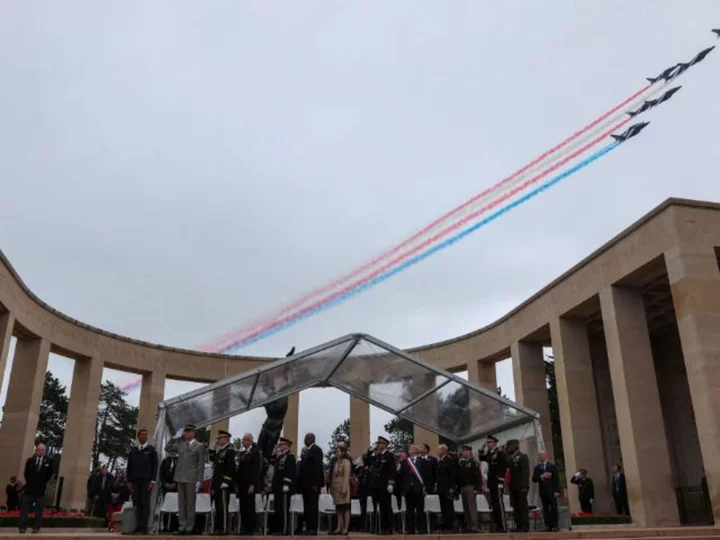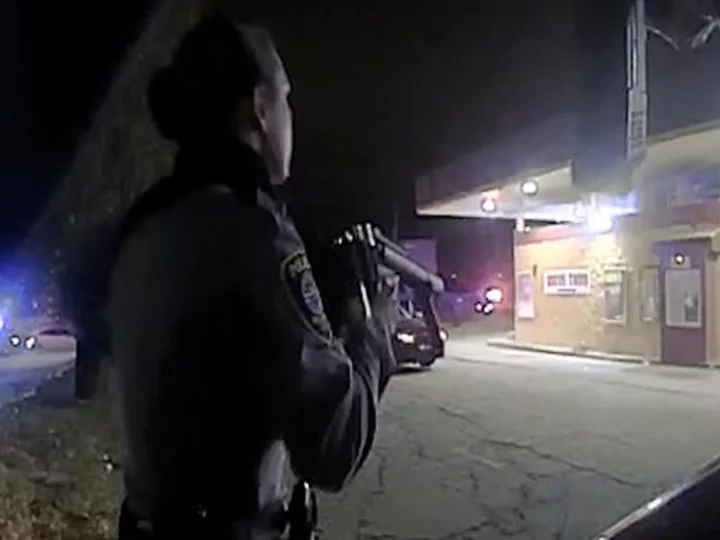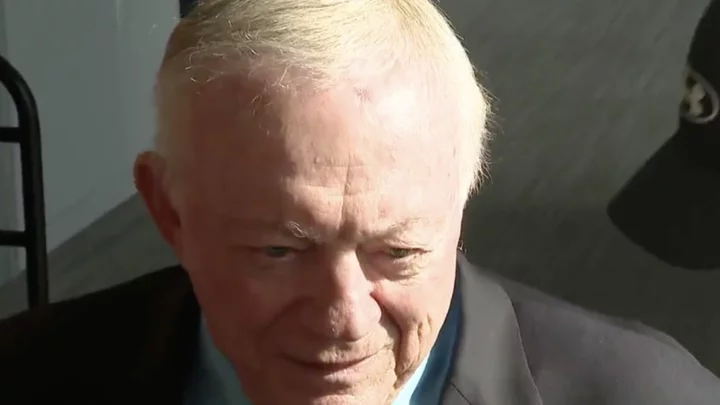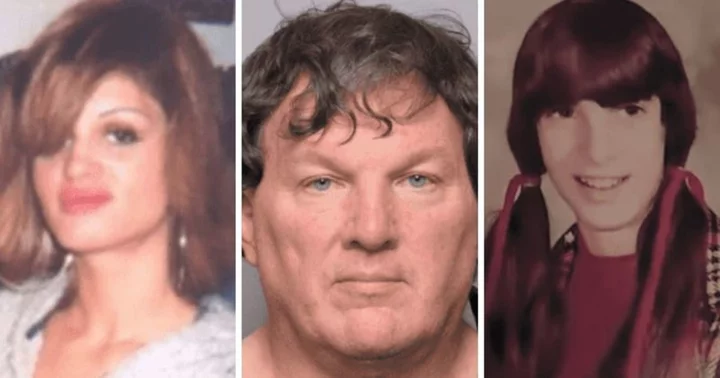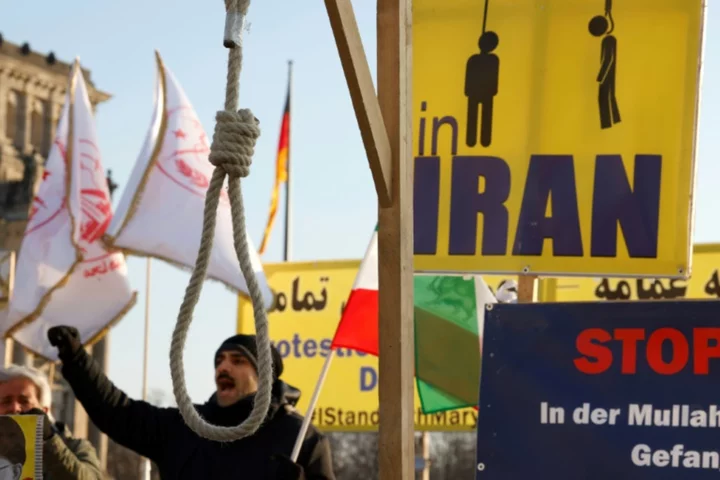Thousands gathered by the beaches of Normandy on Tuesday to remember those who died fighting for freedom in World War II, ceremonies that had renewed meaning as speakers, including US Defense Secretary Lloyd Austin, pointed to parallels with Ukraine's war against Russia.
Seventy-nine years ago, D-Day kicked off the liberation of Europe, spearheaded by Allied sea and airborne landings in Normandy, France.
The first step toward victory -- and peace -- in Europe, it came at great cost to American and Allied soldiers, some 10,000 of whom would lie dead, be wounded or reported missing on French soil on that first, fateful day.
The parallels with the war in Ukraine have appeared again and again in speeches and comments about the D-Day commemorations. Many have pointed to the same struggle for freedom against occupation that drove both the liberation of Europe and Kyiv's fight against Russia's invasion.
As Ukraine nervously waits the outcome of its counteroffensive, the comparison with the Normandy landings is stark.
Austin, at the American War Cemetery off Omaha Beach, spoke of the war in Ukraine and the same desire -- as was the case 79 years ago in Normandy -- to seek a world "where those who speak tyranny and genocide will be cast out."
"If the troops of the world's democracies could risk their lives for freedom then, surely the citizens of the world's democracies can risk our comfort for freedom now," he said.
The bloody price of peace
Visiting Normandy to remember the American and Allied sacrifice, Gen. Mark Milley, Chairman of the Joint Chiefs of Staff, whose uncle fought on D-Day, repeatedly pointed to the death toll among French civilians alongside those of the liberating troops.
Many French civilians of the World War II generation -- caught amid battles through their homes, streets and gardens -- gave up far more than their comfort.
It's a toll once again being borne by innocent populations in Europe, as war burns on the other side of the continent in Ukraine.
A painful reminder came on Tuesday as Ukraine's Nova Khakhova dam was destroyed, threatening towns and villages with flooding, far from the front line of Russia's illegal invasion.
The destruction of the dam is putting "thousands of civilians at risk," the country's foreign minister Dmytro Kuleba tweeted Tuesday, calling it a "heinous crime."
As Ukraine gears up for an expected counteroffensive, the country's President Volodymyr Zelensky was clear on how to protect his compatriots.
The dam's destruction "only confirms for the whole world that [Russia] must be expelled from every corner of Ukrainian land. Not a single meter should be left to them, because they use every meter for terror," Zelensky said.
CNN cannot independently verify who was responsible for the dam's destruction.
Gil Nadeau, a veteran of the World War II Pacific campaign who traveled to Normandy this year to pay tribute to all those who fought and died in the conflict, told CNN that the French were still grateful, nearly eight decades on.
"In the United States, they see our hats and they say 'thank you for your service.' And it's lip service. Here, it's from their hearts because they had been invaded," he said. "Here, the older people lived it. When we come, they thank us and they mean it. That means something."
Milley recounted to CNN meeting a veteran paratrooper on a past visit to Normandy and asking him what lesson he had for the four-star general. Expecting a tactical nugget, he was surprised when the man's eyes began to tear up as he spoke.
"Never let it happen again," the man told Milley. "Never let it happen again."
At the American War Cemetery, Austin addressed several dozen American World War II veterans who had traveled to Normandy for the commemorations.
"The veterans of World War II, we salute you," he said, his words backed by the sound of the waves lapping Omaha Beach.
"You saved the world. We must merely defend it."

